Lives of horses – and their owners – improved in rural Haiti by international project despite Covid-19.
Posted on 01/04/2022
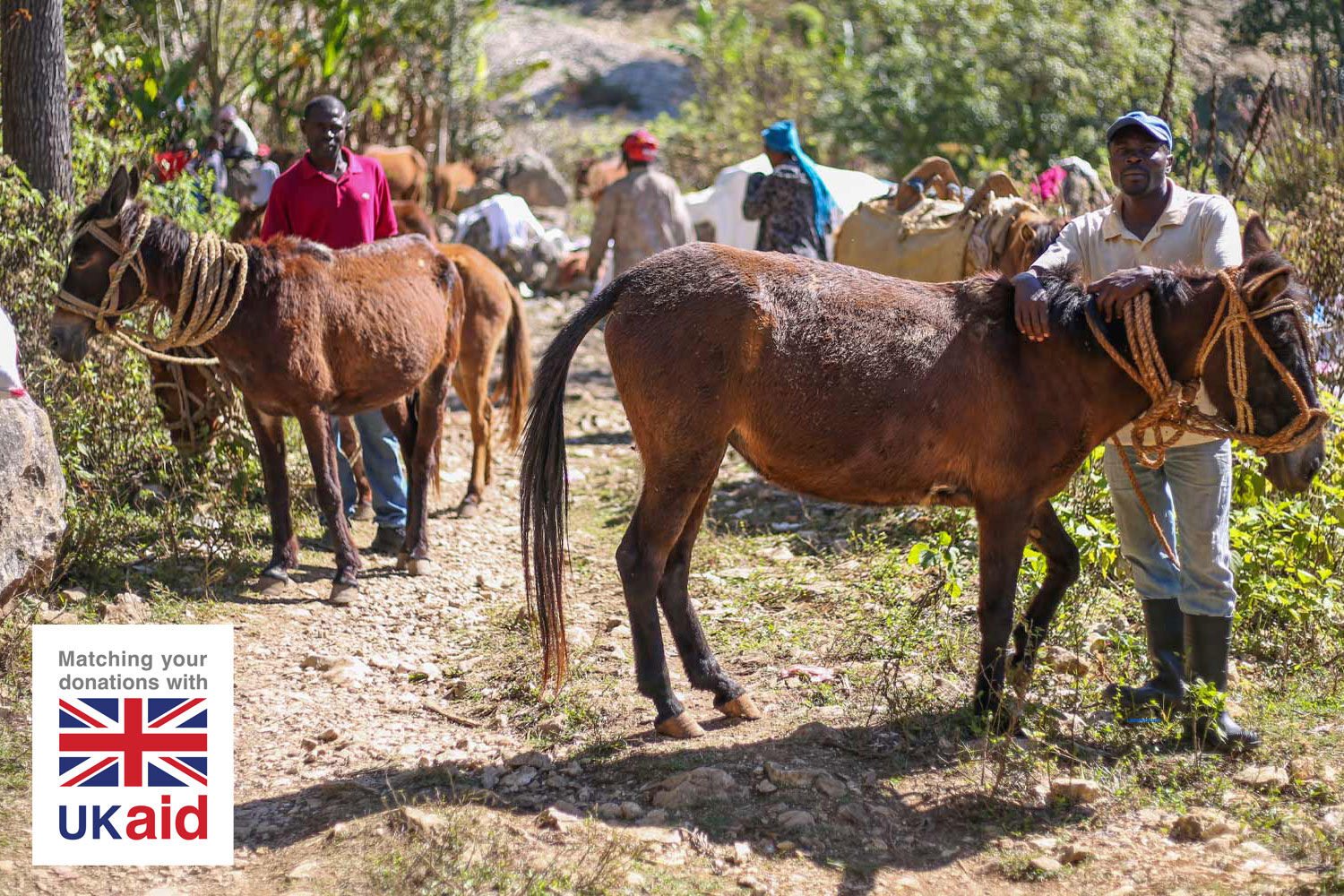
A community-based project in rural communities surrounding Port-au-Prince, Haiti has succeeded in improving the lives of working equids (horses, ponies, donkeys and mules) – and subsequently the people who depend on them – despite the challenges that Covid-19 presented.
In 2019 World Horse Welfare raised £826,153 to set up the project in Haiti with local charity Quatre Pattes, including £396,988 of match funding from the UK government. The project shares knowledge through community-based local agents with members of the horse owning communities. By providing training in saddlery, horse care and veterinary treatment not only does the project support owners in improving the health of their working horses, but it also opens up income generation opportunities for local people.
Working horses, donkeys and mules are an essential for transport in rural communities in Haiti – carrying produce to be sold at markets, ferrying water for livestock, transporting children to school and even playing vital roles in wedding and funeral ceremonies. Learning how to keep their horses strong and able to work is important to the people who depend on them, and World Horse Welfare’s project helps communities learn new skills that can be passed down from generation to generation.
Arius Ambroise, a community-based agent for Quatre Pattes in Kenscoff, said:
“The farmers depend on their animals…the project was quick to identify that working animal owners needed training. With our training sessions, they understand the importance of taking care of the animal, to protect it knowing how useful it can be…they now know that their animal must be rested if it is injured.”
When asked whether Covid-19 had affected his ability to deliver training, Harris said:
“When Covid had just started, no-one would receive people at their house…but since our intention is to help, they let us provide training on the barrier measures, on how to protect oneself. Also, they know us, we are community agents, they know us very well.”
Interviewing a number of training participants, it is apparent that a significant change has taken place in the relationship between the working equids and their owners, leading not only to an improvement in the welfare of the animals but also positive change in the lives of their owners.
One owner, Evelyne St-Mil from Bongard, summed it up by saying:
“Before, I was afraid of my horse, I didn’t want to get close to it…during the training the agent showed me how to interact with it, how to convince it to be my friend…Today, the animal is much more profitable, because before I didn’t know how to take care of it.
“My situation has improved because of the training…as an example, when I used to transport my goods myself, I could earn about 250 gourdes. With the help of the horse, I can earn up to 750 gourdes and even more.”
World Horse Welfare will continue to support and work with Quatre Pattes for another year, putting in the foundations for a community-led, local solution that can continue to help equids for many years to come.
Topics
Related News
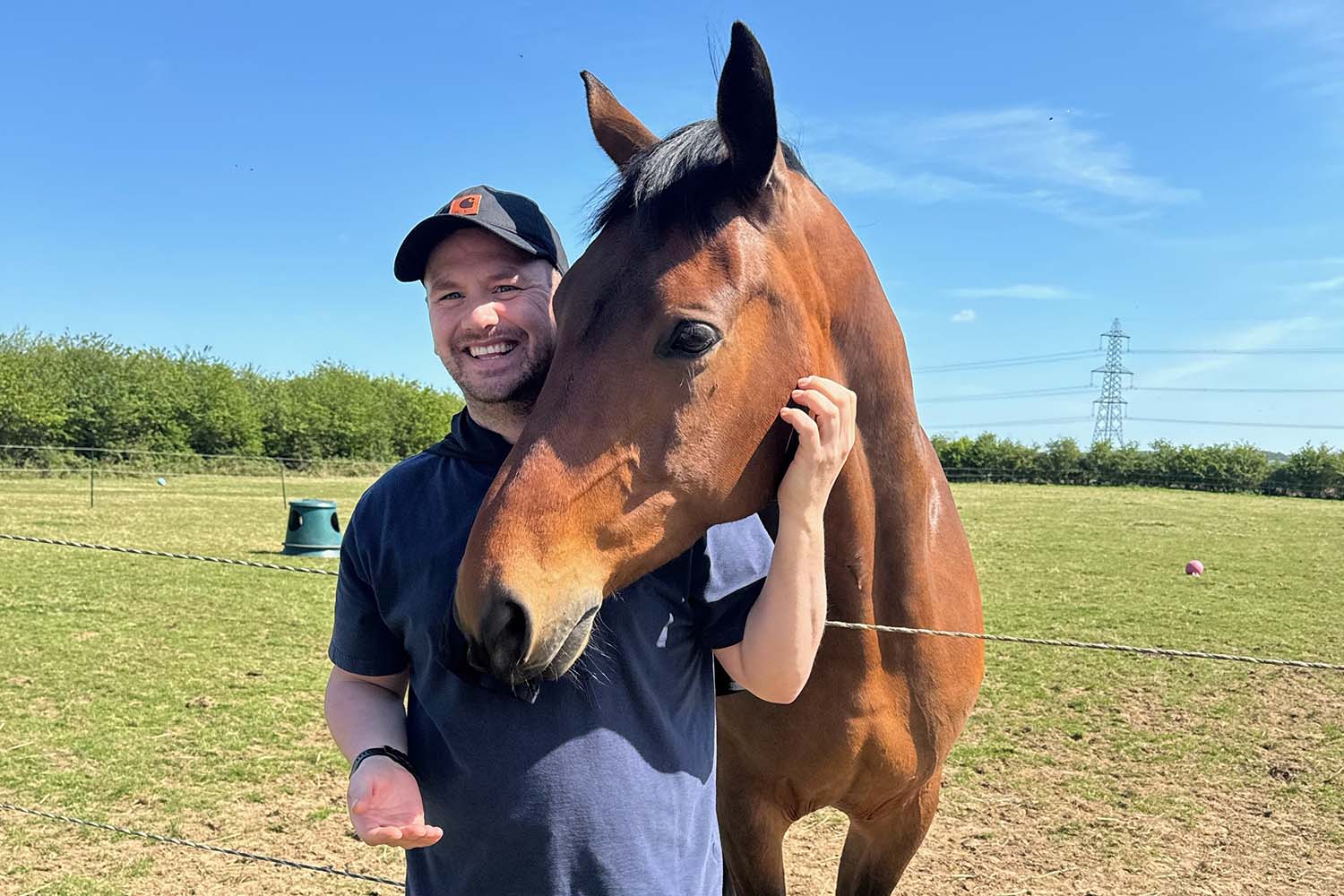
London Marathon: Norwich technician running for World Horse Welfare
An oil rig technician from Norwich has been training offshore as he prepares to run the London Marathon for our charity

Outrage as more horses being smuggled out of the UK are intercepted a year after we rescued 26 from similar circumstances
Smuggled horses discovered once again despite Animal Welfare (Livestock Exports) Act 2024
Recommended Blog Posts
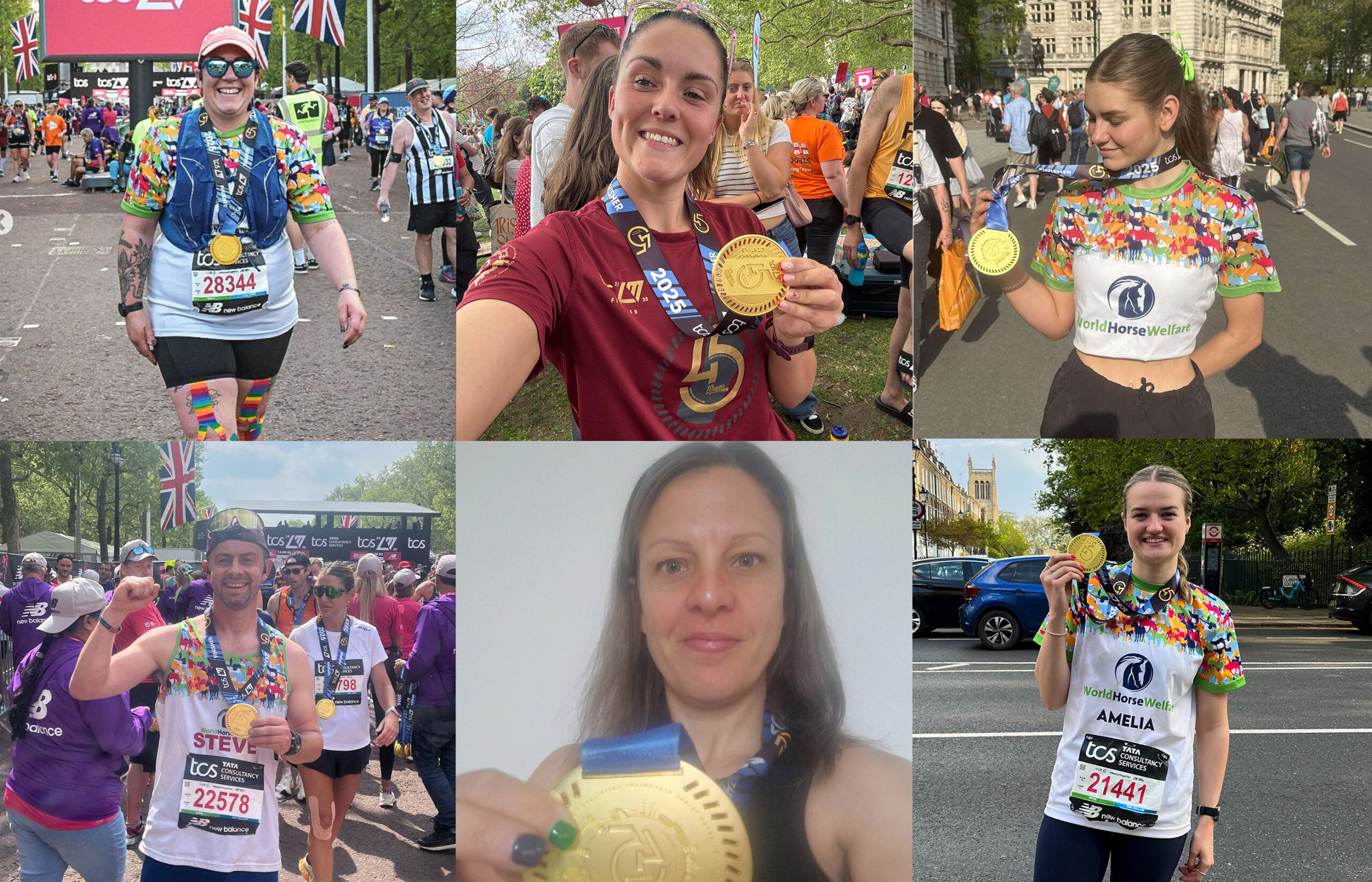
Celebrating our super supporters as they run the London Marathon
From jelly baby sustenance to running with Joe Wicks, we catch up with our six runners to see what running the iconic marathon was really like.
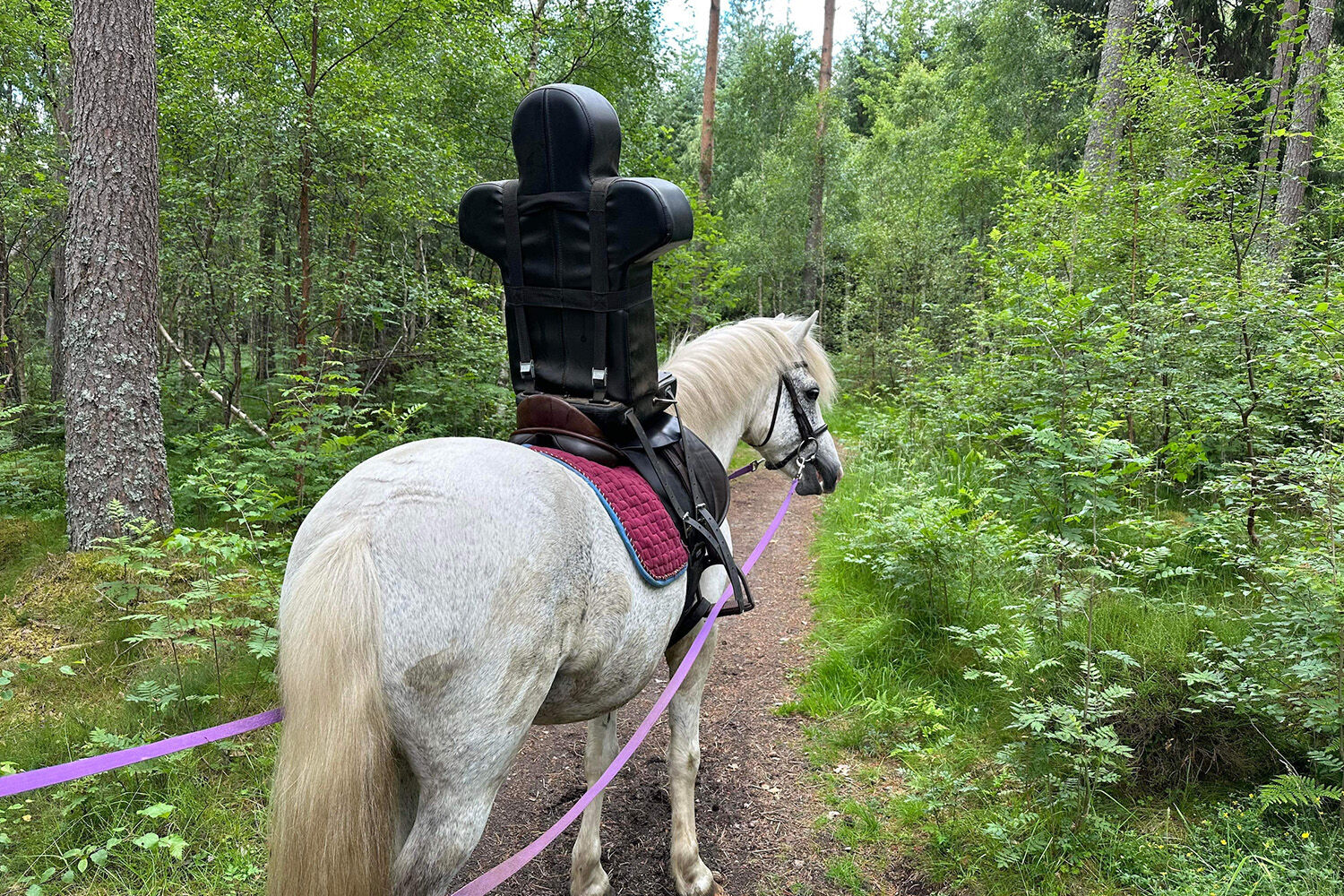
What is a dummy rider and how do we use them on our farms?
We catch up with Caroline Heard, Assistant Manager at Belwade Farm, to find out all about them.
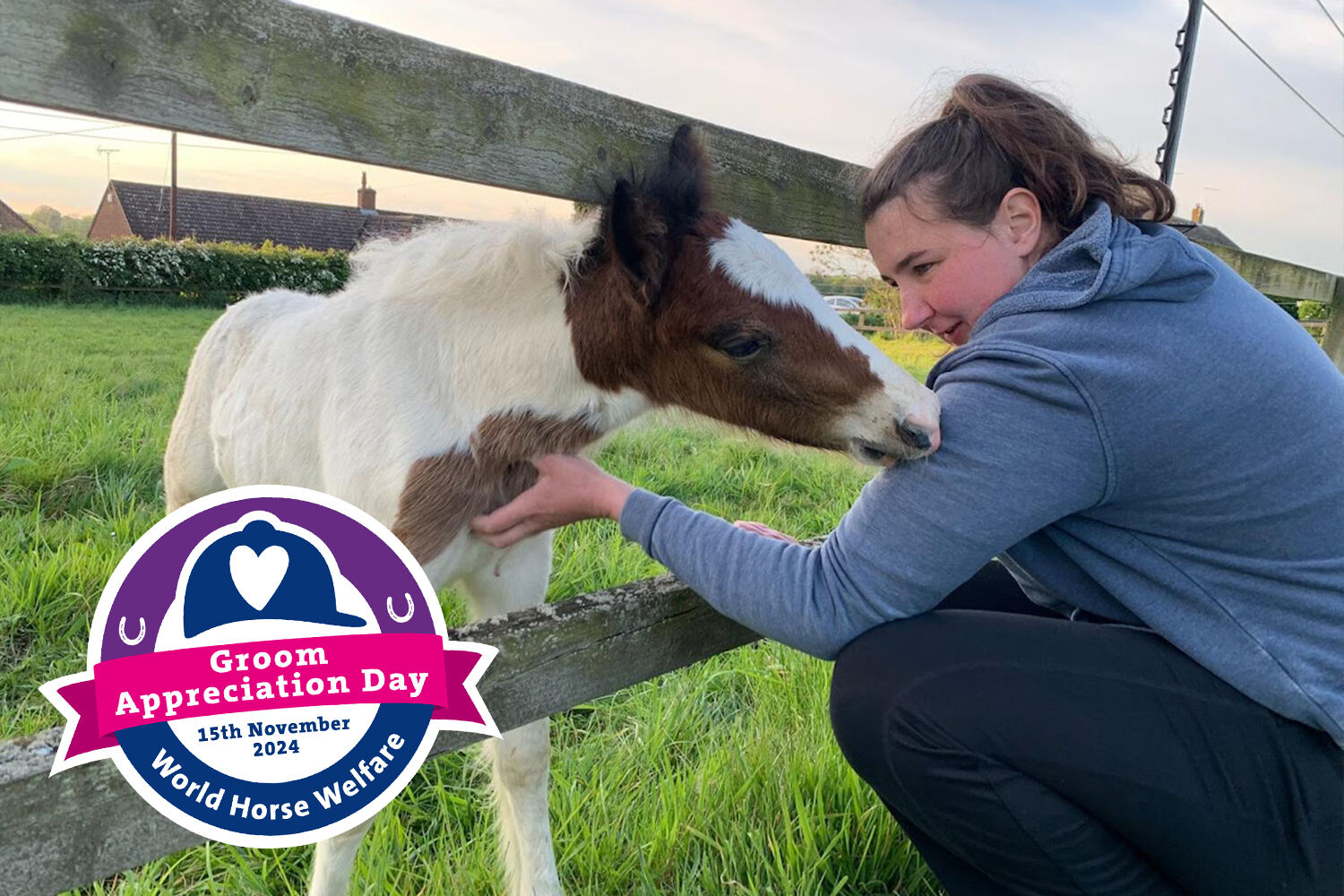
Meet some of our often-unsung heroes on Groom Appreciation Day – Kathryn at Hall Farm
"It can be quite the emotional rollercoaster, ranging from the joy of a horse being rehomed to the perfect long-term home, to the pain of seeing a severely neglected foal lose its battle to live."
Enjoy reading stories like this?
Join over 55,000 other horse lovers and sign up for our email newsletter

Join over 55,000 other horse lovers and sign up for our email newsletter
Sign me up now